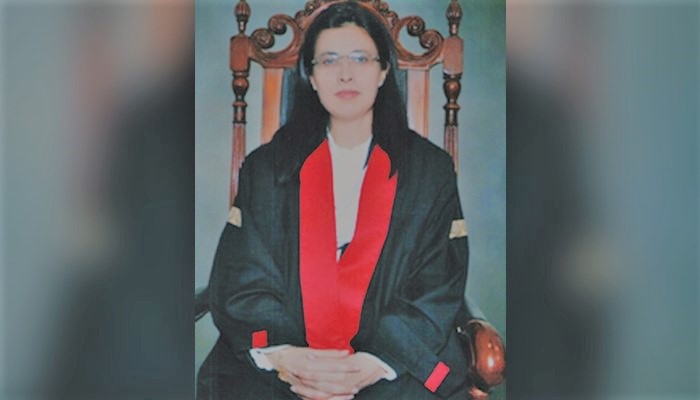Justice Ayesha A Malik was nominated to be appointed as the judge of the Supreme Court by Chief Justice of Pakistan (CJP) Gulzar Ahmed earlier in August this year.
Justice Ayesha Malik, 54, is a graduate of the Government College of Commerce & Economics, Karachi, and further did her LLM from Harvard Law School. She is one of the only two female judges in the 40 esteemed judges of the Lahore High Court and holds the number four position in the seniority list of LHC judges. She gained eminence after her landmark judgment against the ‘two-finger virginity test’ of sexual assault survivors.
Despite her credibility, the lawyer representing bodies across the country has expressed vigorous protest against the elevation of Justice Ayesha Malik to the Supreme Court. They consider it to be a breach of the seniority principle as Justice Ayesha is fourth on the seniority list.
In order to express their resentment, the Pakistan Bar Council and other lawyers’ unions across the country have decided to gather in masses at a convention in front of the Supreme Court where CJP will decide on the elevation of Justice Ayesha. The Pakistan Bar Council (PBC), the Supreme Court Bar Association (SCBA), the Islamabad Bar Council, and the high court bar associations at the PBC office had mutually consented to this protest in a meeting earlier this week.
The meeting had decided not to conform to the bill passed by National Assembly related to the amendments to the Legal Practitioners and Bar Councils Act, 1973, supporting their stance through another provision— Section 5D — in the act that was against the “basic structure of the Constitution” as well as “gross violation of parliamentary norms and democratic principles”.
Mr. Akhtar Hussain, a senior member of the PCB stated that since the constitution does not provide any clarity regarding allotting a quota to a particular provincial High Court, it cannot be deemed compulsory to elevate the judge to Supreme Court from a particular High Court. Furthermore, he devised that Justice Athar Minallah, Chief Justice of The Islamabad High Court should be appointed in place of Justice Ayesha as he was the senior most judge



